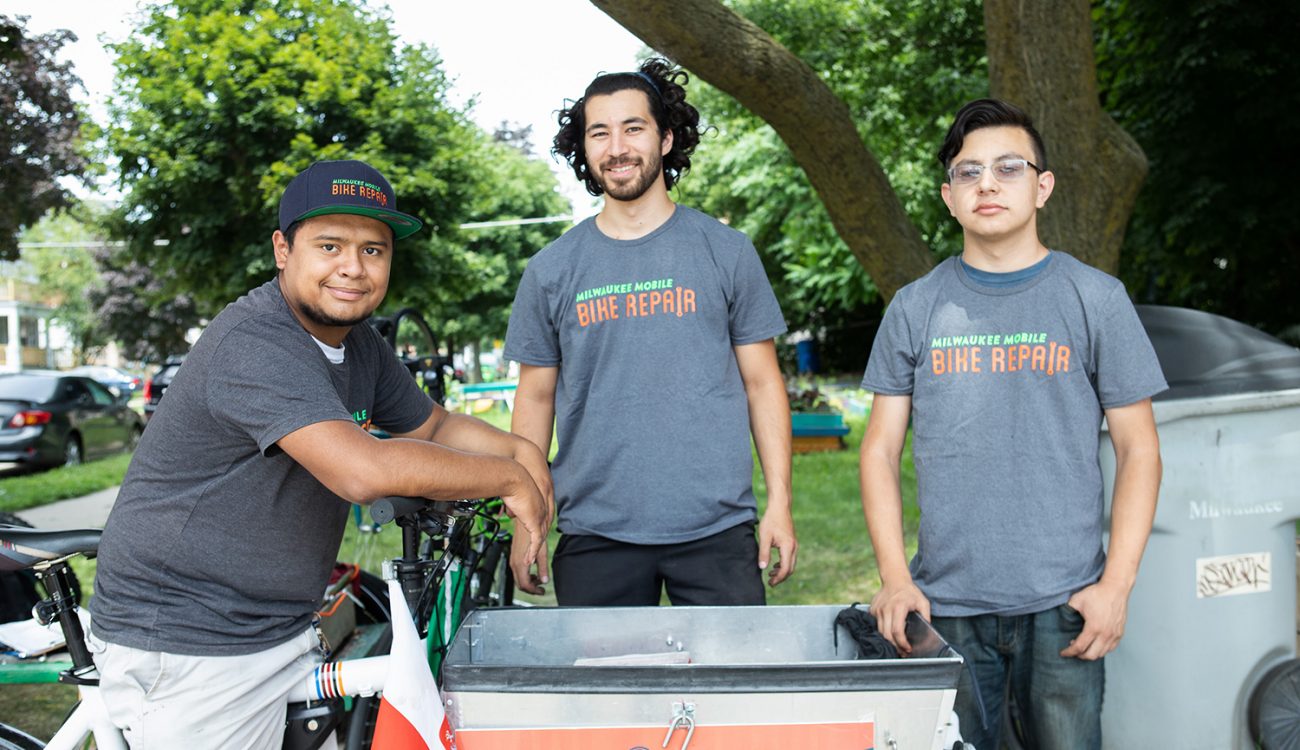
Creating an Oasis in a Bike Shop Desert
One reason for bikes being in disrepair is that many urban neighborhoods just don’t have a bike shop nearby.
When we ask students in our Milwaukee Safe Routes to School classes if they have a bike, most kids raise their hands.
When we ask how many ride to school, many of the kids complain they can’t ride their bike because it has a flat tire. Of those who can ride their bikes to school, we see many without working brakes, missing a seat, with bent handlebars and dry, rusty chains.
Part of the reason the bikes are in disrepair is that many urban neighborhoods just don’t have a bike shop nearby. Another reason is that even if people are willing to go across town to a bike shop to buy a tube or patch kit, most people don’t have the tools or repair skills necessary to fix the bikes themselves. For others, it might come down to a difficult choice between spending $30 to $60 to fix a bike you might not have paid much more for, or paying a bill or buying groceries.
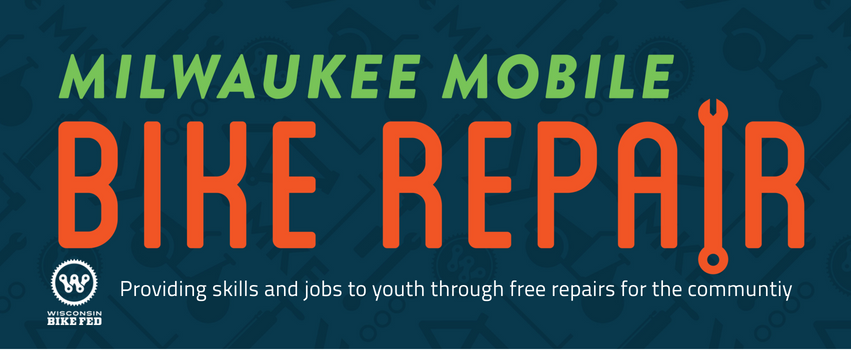
The result is that many bikes with minor mechanical problems sit neglected in the basement or they are ridden in an unsafe condition. We wanted to come up with a solution, so kids would be able to continue to take advantage of the skills they learn in our Safe Routes classes and summer bike camps and ride their bikes after we move on to a new school or neighborhood.
To help address this problem, the Bike Fed has been running a mobile bike repair program on Milwaukee’s south and north sides. In order to spread the word and broaden our reach, we have partnered with Milwaukee Recreation Department and neighborhood associations like Walnut Way on the north side and the Layton Boulevard West Neighbors on the south side.
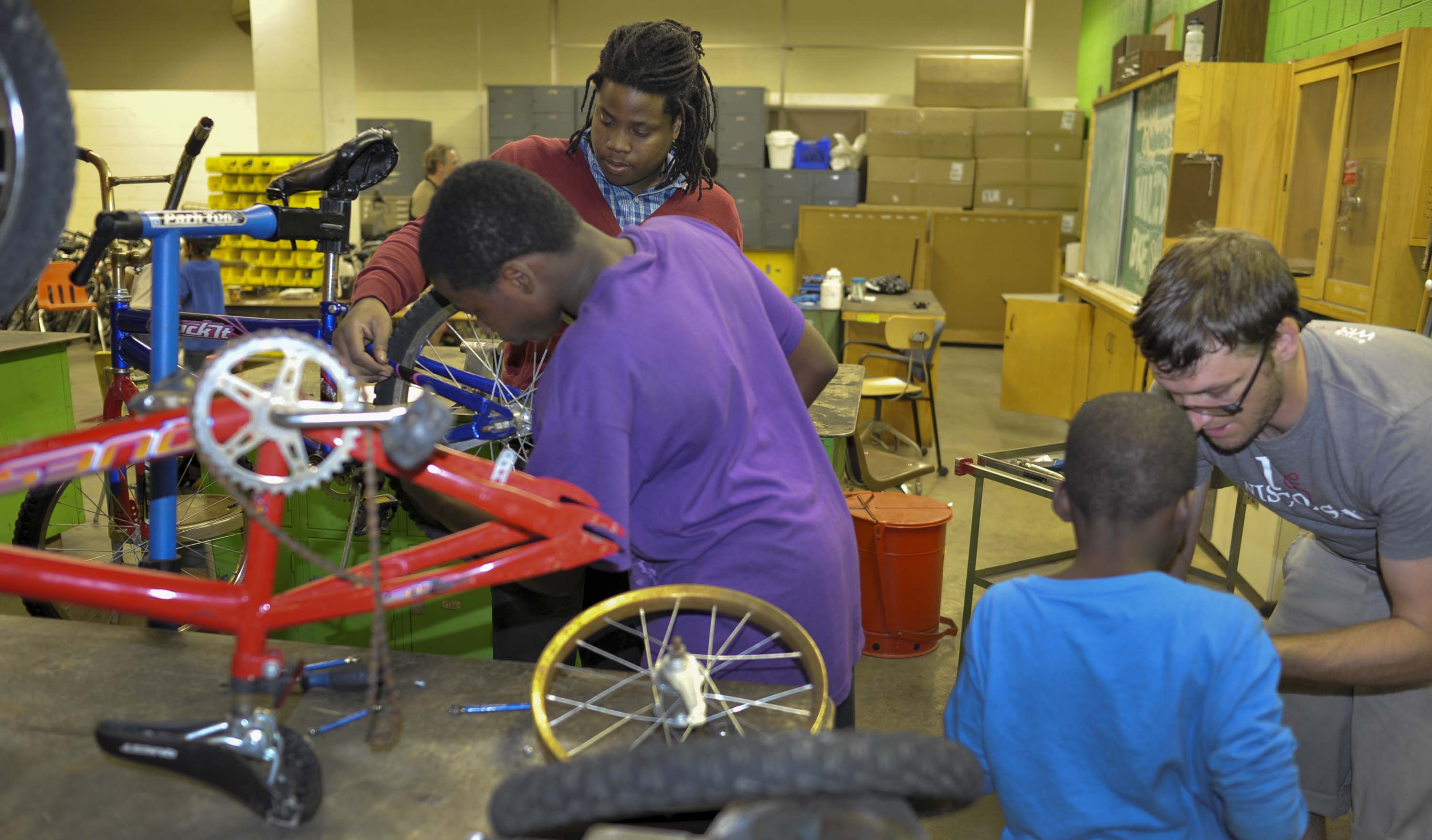
Our mobile repair is somewhat unique in that we actually run the program using cargo bikes, not trucks. Our north side program has a Larry Vs. Harry Bullitt front loader cargo bike. For our southside program, we use the School Bus cargo trike from Virtue Cycles.
The cargo bikes allow us to carry a repair stand and enough tools and spare parts to do most typical repairs. Mostly we bring tubes, tires, cables, pedals, and brakes. If we don’t have the part we need to fix a bike, we make a note of it and ask the person to come back the next time we are scheduled to be at that location.
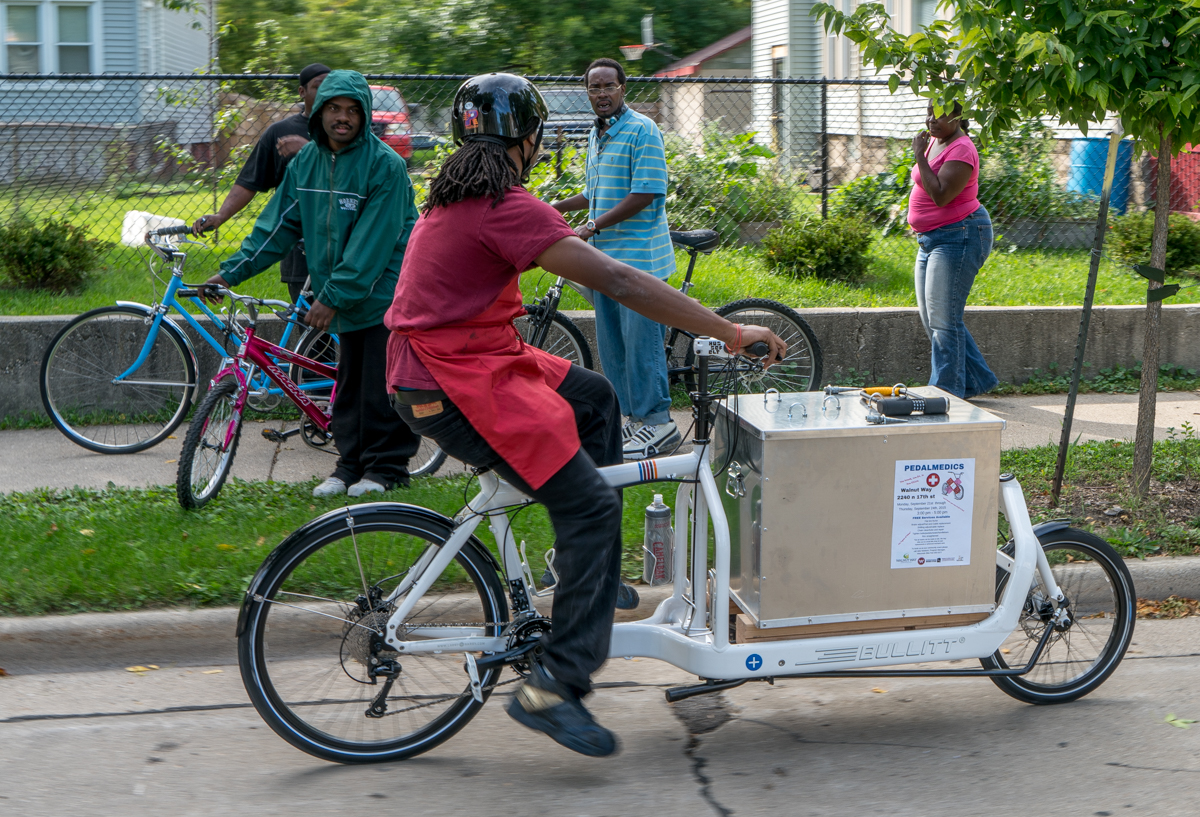
We also like that by using cargo bikes for our mobile repair program, we reinforce the idea that bicycles are not just toys, but can be practical modes of transportation.
While getting folks rolling is the program’s primary purpose, we designed our mobile bike repair program to provide job readiness skills for Milwaukee youth. We work with high school or middle school aged students, teach them basic bike repair and then hire a number of the kids to work as apprentice mechanics during the mobile bike repair season. Not only do the kids earn a little money, they learn things like customer service, the need to show up on time or call in if you will be late. Perhaps as important, they gain valuable first job experience they can put on a resume.
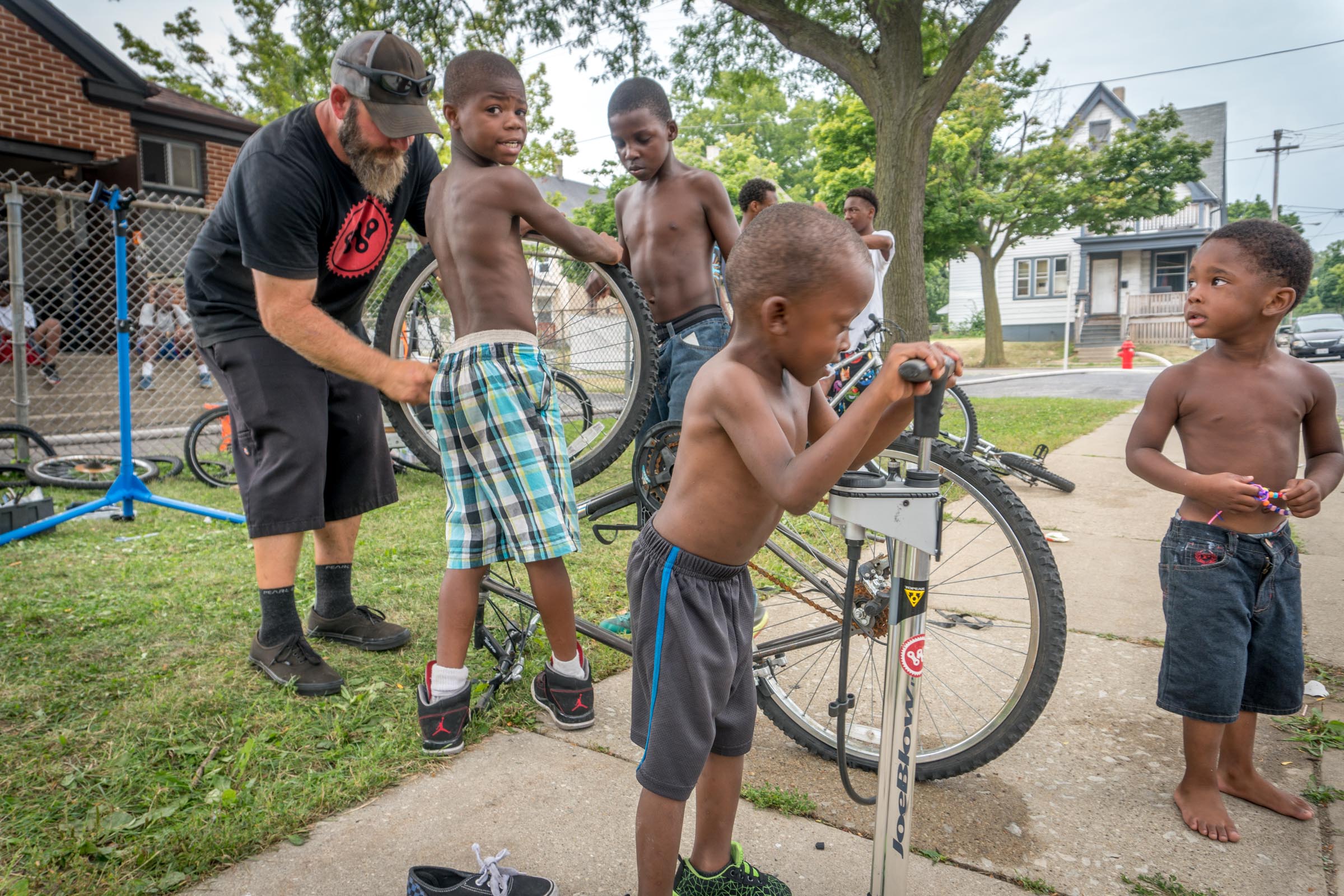
The program begins In the spring, with training sessions after school at our Valid Bike Shop inside North Division High School. There the students learn the fundamentals of basic bike repair by working on the fleet of donated bikes we use for our Safe Routes to School program. The students with good attendance and those who demonstrate a willingness to learn and work are then offered paid apprentice positions working with our head mobile repair mechanics over the summer.
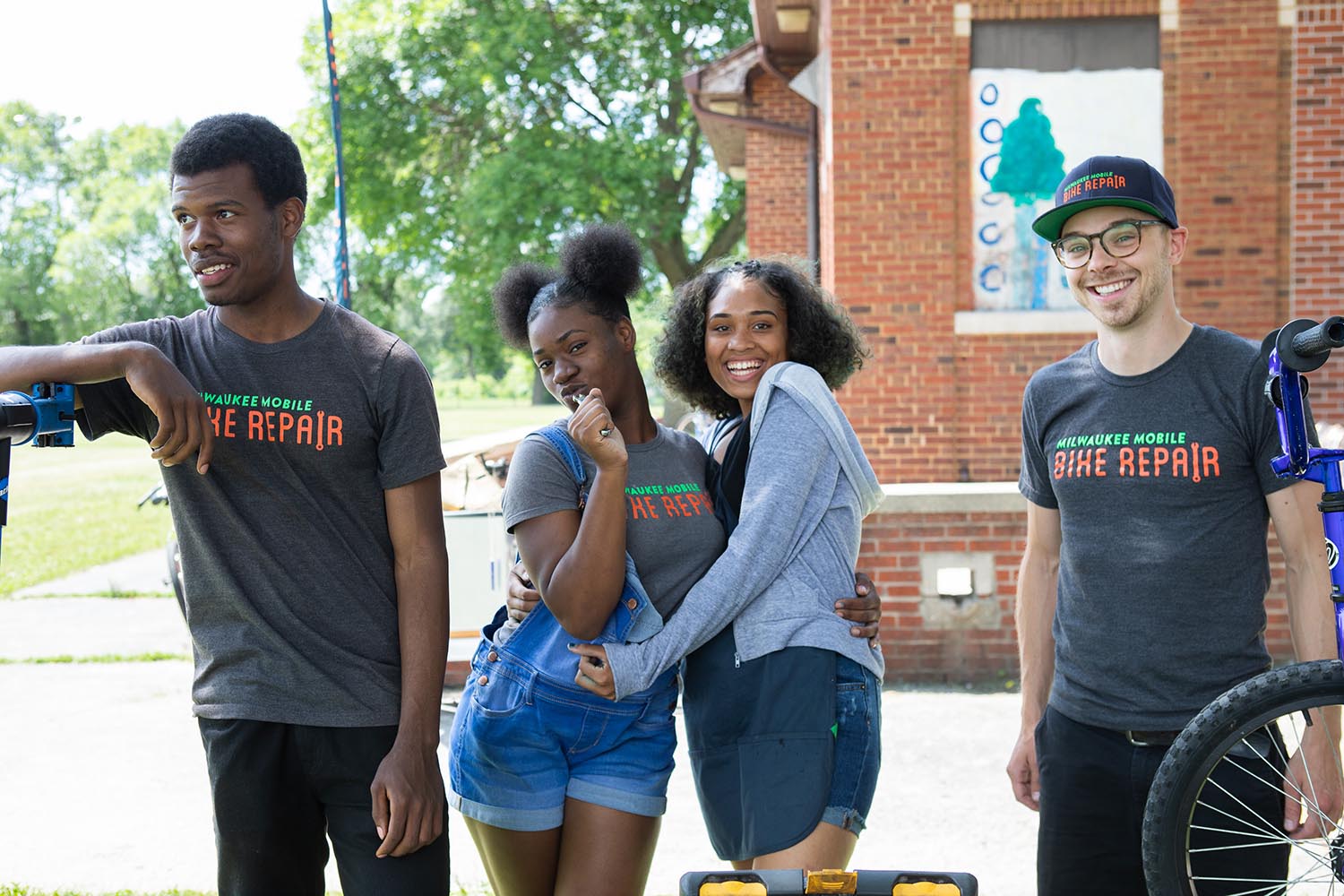
We are still in touch with a number of the kids who have gone through our program, which has helped some of them get other jobs. One student works as a mechanic at DreamBikes, another got a job at Milwaukee Tool, and we hope a couple others will return this summer to continue to work on the mobile bike repair program.
Thanks to a generous donation from the Potawatomi Hotel and Casino’s Heart of Canal Street Program, we will be able to expand our mobile repair program this year.
If you want to start your own mobile repair program in your community here is a good list to get you started!
- Cargo Bike: There are a number of different options out there now, including shops that specialize in cargo bikes, like Coast In Bikes in Milwaukee and The Cargo Bike Shop in Madison.
- Portable work stand, a folding table, shop aprons.
- The basic tools of bike repair. Leave the headset puller and brake bleed kit at the shop.
- Tubes, tires, cables, brake pads, chains, lube, grease are most used and replaced parts and supplies.
- We also won’t hit the road without some Rebel Wipes in our kit. These heavy duty cleaning wipes are great to wash greasy hands after the repairs are done, but they can also be used to clean up dirty bike parts on site when you don’t have access to a parts washer.